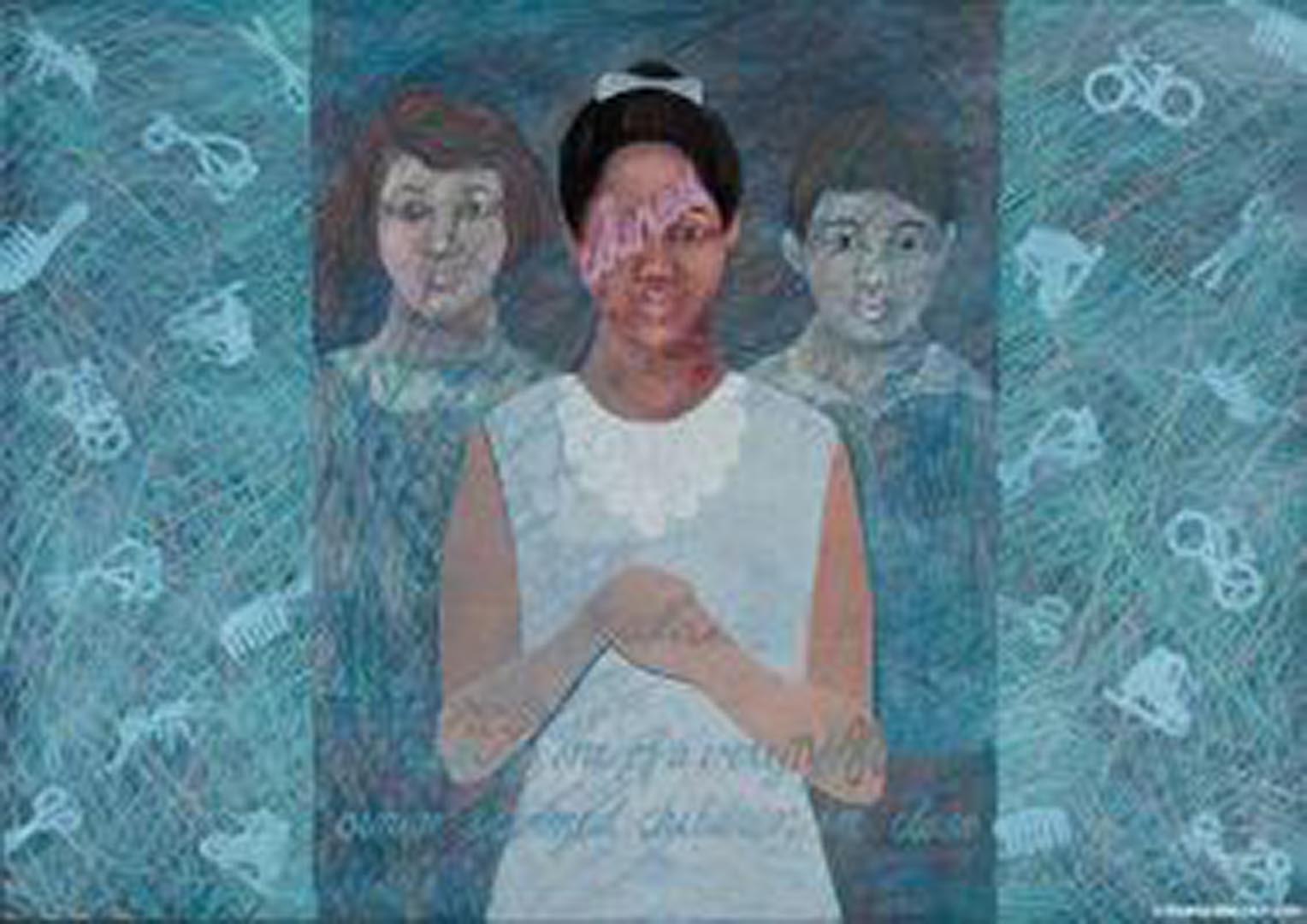Press Release: Shifting: African American Women Artists and the Power of Their Gaze
January 18, 2017

David C. Driskell Center to Present Shifting: African American Women Artists and the Power of Their Gaze
COLLEGE PARK, MD. — The David C. Driskell Center for the Study of the Visual Arts and Culture of African Americans and the African Diaspora at the University of Maryland, College Park is proud to announce its spring exhibition, "Shifting: African American Women Artists and the Power of Their Gaze." The exhibition is organized by the Driskell Center, and is curated by the David C. Driskell Center’s Professor Curlee R. Holton, assisted by Deputy Director Dorit Yaron. The exhibition will be on display at the Driskell Center from Thursday, March 2nd, 2017 through Friday, May 26th, 2017, with an opening reception on Thursday, March 2nd, from 5-7PM.
ABOUT THE EXHIBITION
"Shifting: African American Women Artists and the Power of Their Gaze" is a unique exhibition showcasing the works of prominent African American women artists such as Mequitta Ahuja, Emma Amos, Elizabeth Catlett, Meta Warrick Fuller, Robin Holder, Tonya Ingersol, Jane Jackson, Loïs Mailou Jones, Samella Lewis, Christina A. Long, Mary Lovelace O'Neal, Faith Ringgold, Betye Saar, Xaviera Simmons, Clarissa T. Sligh, Kara Walker and Deborah Willis.
For years, a woman’s place in most societies has been defined first and foremost by her gender. As noted by the French scholar Simone de Beauvoir, women are defined as "the other" while men are defined as "the one;" to belong to "the others" or "the one" is evident through sight. According to the British feminist film theorist Laura Mulvey, who wrote extensively on the subject of the "Male Gaze," women are always the objects of the gaze, never the possessors of the gaze.
"Shifting" explores how African American female artists turn their gaze on the world around them, as well as on themselves and on other women. Not attempting to provide one answer, this exhibition serves as a platform for creating a dialogue around the questions: Whose gaze is it? Is the male gaze also the female gaze? Are women looking at themselves through the male gaze?
"Shifting" features art made by African American women asserting their own artistic authority and, in many ways, reshaping and redefining the art world and culture at large. "Gaze" has a wide range of possible meanings. There is the conventional, "steady intense look;" but we cannot escape the broader implication of "the Gaze" when we examine its self-defining authority and power. This exhibition and scholarly discussion will highlight the major theoretical and aesthetic shifts that have occurred in the art making strategies of female artists, particularly the African American artists and how those shifts of self-authority have empowered them to direct their "gaze" upon the world. The Driskell Center believes it is timely and critically important to establish a series of national dialogs around dynamics of race and cultural pride, womanhood and femininity as critical elements of a national artistic vision.
In conjunction with the exhibition, the Driskell Center will present several programs. The most ambitious of these is a panel discussion to be held at 4pm on Friday, March 3rd, 2017. The purpose of this panel is to recognize and critically examine the contribution of African American women artists to the American art canon and understand how they have both impacted and responded to the contemporary art world. The panel will be lead and moderated by Lisa Farrington, Art Professor and Chair of the Department of Art and Music at John Jay College, NYC. The additional participants are: Kirsten Pai Buick, Ph.D., Associate Professor, College of Fine Arts, Department of Art and Art History, University of New Mexico, Albuquerque; Elsa Barkley Brown, Associate Professor of History and Women’s Studies and Affiliate Faculty in African American Studies and American Studies at the University of Maryland, College Park; Kelli Morgan, the Winston & Carolyn Lowe curatorial fellow for diversity in the fine arts at the Pennsylvania Academy of the Fine Arts, Philadelphia; and Dr. Deborah Willis, university professor and chair of the Department of Photography & Imaging at the Tisch School of the Arts at New York University, NYC.
The papers given at the panel will be included in a publication to be released after the exhibition opens.
RSVP for the panel is required by February 28th, 2017 at driskellcenter@umd.edu or 301.314.2615.
ABOUT THE DAVID C. DRISKELL CENTER
The David C. Driskell Center for the Study of the Visual Arts and Culture of African Americans and the African Diaspora at the University of Maryland, College Park, celebrates the legacy of David C. Driskell--Distinguished University Professor Emeritus of Art, Artist, Art Historian, Collector and Curator--by preserving the rich heritage of African American visual art and culture. Established in 2001, the Center provides an intellectual home for artists, museum professionals, art administrators and scholars of color, broadening the field of African diasporic studies. The Driskell Center is committed to collecting, documenting and presenting African American art as well as replenishing and expanding the field. For further information about the David C. Driskell Center, please call 301.314.2615 or visit www.driskellcenter.umd.edu.
The Driskell Center Gallery’s hours are Monday through Friday from 11AM to 4PM with extended hours on Wednesday until 6PM. The Driskell Center Gallery will additionally be open on Saturday, Mar. 11th, Apr. 8th, and May 13th from 11AM to 4PM. The Driskell Center observes all University of Maryland closings due to inclement weather and holidays.
Image credit: Robin Holder. "One of a Few," 1997. Monoprint, 29.5"x30". Gift of the artist via The David C. Driskell Center.

